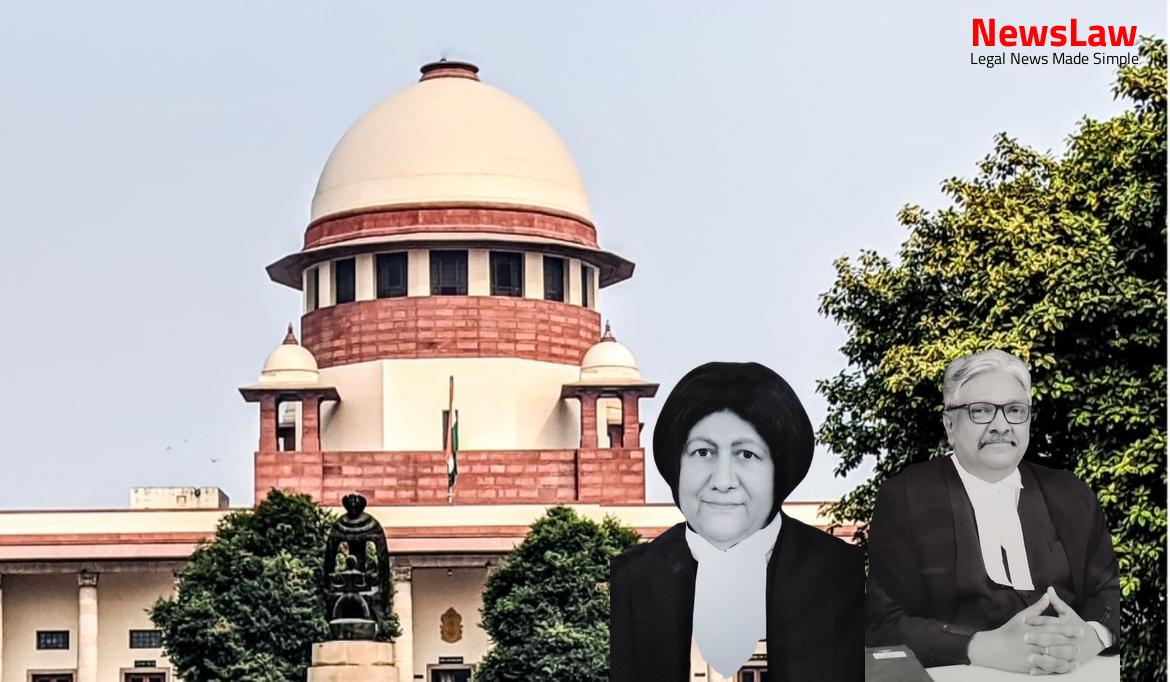In a significant ruling by the Supreme Court of India, a clarification on reservation in promotions for persons with disabilities was provided. The case involved the identification of suitable posts for reservation under the Persons with Disabilities Act, 1995. The judgment emphasizes the importance of empowerment and inclusion of disabled individuals in the workforce. Stay informed about the implications of this decision on disability rights and promotion opportunities. #SupremeCourt #DisabilityRights #Inclusion
Arguments
- The respondent’s argument regarding the application of the principle in Indra Sawhney to bar reservation in promotions to identified posts of Group A and Group B is not accepted.
- Indra Sawhney’s ruling was specific to reservations in favor of backward classes falling under Article 16(4).
- The principle in Indra Sawhney is applicable only when the State aims to provide preferential treatment in employment to certain identified backward classes.
- Article 16(4) does not prevent the State from providing reservations to other deserving classes under Article 16(1) as long as they meet the criteria for such treatment.
- The basis for providing reservation for Persons with Disabilities (PWD) is physical disability, not any forbidden criteria under Article 16(1).
- The rule of no reservation in promotions as laid down in Indra Sawhney does not apply to PWD.
- Learned senior counsel for the appellant extensively presented arguments.
- Counter affidavit paragraph 4(C) mentions the appointment of a committee by Chhattisgarh State Power Holding Company Ltd.
- The committee is tasked with identifying the posts eligible for reservation in promotion.
Also Read: Legal Analysis of Property Occupation in Insolvency Resolution
Analysis
- Para 51 of an earlier judgment clarified in the context of the computation of vacancies in different posts.
- The judgment in National Federation of the Blind vs Sanjay Kothari, Secy. Deptt. of Personnel and Training was clarified in relation to the manner of identification of posts in different groups.
- Indra Sawhney overruled Rangachari regarding reservations in promotions under Article 16(4) of the Constitution.
- Reservation in promotions was not permitted post-Indra Sawhney as per the Supreme Court’s interpretation.
- The contention in a case regarding reservation in promotions under The Persons with Disabilities Act, 1995 was discussed.
- The prohibition against reservation in promotions as laid down by the majority in Indra Sawhney & Others v. Union of India & Others applies to Article 16(1) as well, not just 16(4).
- Preferential treatment for persons with disabilities may include reservation in appointment but not in promotion as per the background of Section 33 of the 1995 Act.
- Employment is crucial for the empowerment and inclusion of people with disabilities.
- Social and practical barriers, not disability itself, hinder disabled individuals from joining the workforce.
- Reservation for persons with disabilities is horizontal under Article 16(1) of the Constitution, not bound by the 50% ceiling.
- Impugned memoranda declared illegal and inconsistent with the 1995 Act, directing three percent reservation in identified posts in Group A and B.
- Identification of posts for reservation must be uniform across all job categories.
- Differences between vertical and horizontal reservations highlighted, with the latter providing inter-locking reservations.
- The computation of disability reservations should be uniform for all job categories (Group A, B, C, and D).
- Office Memorandums counter to the court’s decision are struck down, new ones must align with the court’s ruling.
- Parliament’s Act 1 of 1996 sets the framework for non-discriminatory employment provisions for disabled persons.
- Despite legislative provisions, disabled individuals face challenges in accessing benefits and opportunities.
- Clear guidelines were issued for the implementation and protection of disabled persons’ rights in employment.
- Judgment emphasizes the importance of proper identification of posts for reservation to maintain balance and inclusivity.
- Court directives stress the obligation of governments to safeguard the rights of disabled individuals as per international treaties and constitutional mandates.
- The appropriate government must appoint a certain percentage of vacancies for persons with disabilities in every establishment.
- One percent each should be reserved for persons suffering from blindness or low vision, hearing impairment, and locomotor disability or cerebral palsy.
- There is provision for exemptions to this rule based on the type of work carried out in an establishment.
- The Act defines disability to include blindness, low vision, leprosy-cured, hearing impairment, locomotor disability, mental retardation, and mental illness.
- Posts in establishments are identified that can be reserved for persons with disabilities, with regular reviews and updates of the list.
- A ‘person with disability’ is defined as someone suffering from not less than forty percent of any disability as certified by a medical authority.
- The Act also establishes Central and State Coordination Committees and focuses on the prevention and early detection of disabilities.
- The Internal Committee decided that the post of Executive Engineer, Mechanical and Electrical should not be under reservation due to the requirement of personal site visits and activities.
- However, reservation will apply in promotions to Executive Engineer, Computer Science, Information & Technology, and Civil Engineering.
- The decision of the company regarding reservation has not been challenged and is binding as per the Rights of Persons with Disabilities Act, 2016.
- The Internal Committee’s consideration of the post and its decision on reservation is noted.
- The appellant’s counsel highlighted the requirement for an Expert Committee to identify suitable posts for persons with disabilities as per the relevant laws.
Also Read: Legal Analysis on Physical Ability in Rape Case
Decision
- The Central Administrative Tribunal followed the 2005 O.M. without considering any judgments of the Court.
- A writ petition challenging the CAT’s order was dismissed by the Karnataka High Court, leaving the question of law open.
- The judgments of the Court are to be followed by the Union of India and the States in this matter.
- The CAT’s judgment and consequently the High Court’s judgment are set aside.
- The case will be governed by the three decisions outlined by the Court.
- SLP (C) No 21197 of 2017 was dismissed in view of the today’s judgment.
- SLP (C) No 4650 of 2019 was dismissed with the direction to apply and follow the three judgments mentioned in the lead matter.
Also Read: Legal Analysis on Admissions and Document Consideration in Insolvency Case
Case Title: SIDDARAJU Vs. THE STATE OF KARNATAKA (2020 INSC 36)
Case Number: C.A. No.-001567-001567 / 2017



